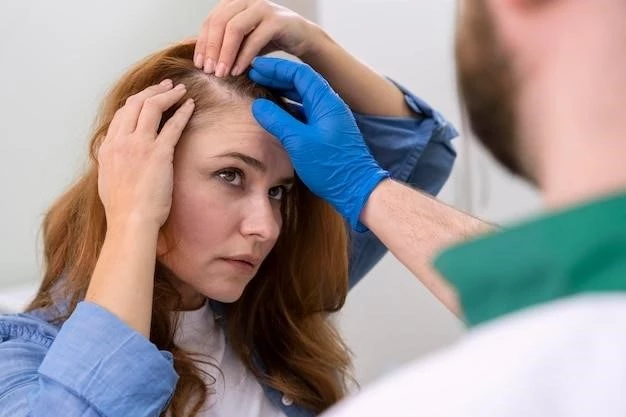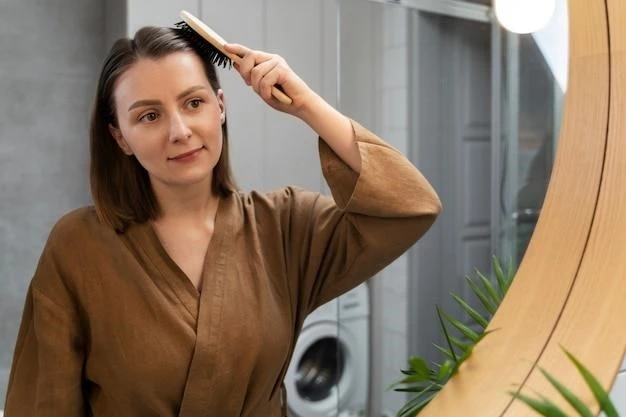Understanding the causes of Alopecia Areata can help in exploring effective treatment options.
Overview of Alopecia Areata
It’s crucial to understand that alopecia areata is an autoimmune condition where the immune system mistakenly attacks hair follicles‚ leading to hair loss. Genetics‚ environmental factors‚ and immune system issues contribute to the development of this condition.
Causes of Alopecia Areata
Various factors contribute to alopecia areata‚ including genetics‚ environmental triggers‚ stress‚ and immune system dysfunction. Understanding these triggers can help in managing the condition effectively and exploring suitable treatments.
Seek advice from a healthcare professional to explore conventional medical treatments for alopecia areata.
Conventional Medical Treatments
Conventional treatments for alopecia areata may include corticosteroid injections‚ topical immunotherapy‚ minoxidil‚ and anthralin. Consult a dermatologist to discuss the most suitable treatment plan based on your specific condition.
Emerging Therapies
Stay informed about emerging therapies for alopecia areata‚ such as JAK inhibitors‚ platelet-rich plasma therapy‚ and stem cell treatments. Discuss with your healthcare provider to explore these innovative options.
Observing and understanding the symptoms of alopecia areata in children is essential for early detection and timely intervention.
Symptoms in Children
Common symptoms of alopecia areata in children include sudden hair loss in small patches‚ changes in nail texture‚ and sometimes itching or tingling in the affected areas. Keep an eye on these signs and consult a pediatric dermatologist for professional evaluation.
Treatment Approaches for Children
When treating alopecia areata in children‚ options may include corticosteroid creams‚ corticosteroid injections‚ and minoxidil. Consult a pediatric dermatologist to discuss the most suitable treatment plan tailored to your child’s needs.
Adopting a healthy diet rich in essential nutrients can support overall hair health and manage alopecia areata effectively.
Nutrition and Diet Suggestions
Include foods high in vitamins A‚ C‚ D‚ and E‚ biotin‚ zinc‚ and iron to promote hair growth and strengthen follicles. Stay hydrated and avoid excessive consumption of processed foods for optimal hair health.
Haircare Recommendations
Opt for gentle shampoos and conditioners suitable for sensitive scalp. Avoid harsh chemicals‚ excessive heat styling‚ tight hairstyles‚ and over-brushing to minimize hair breakage and maintain scalp health.
Explore healthy coping mechanisms to manage the emotional impact of alopecia areata and maintain a positive outlook.
Coping Mechanisms
Engage in activities like meditation‚ journaling‚ therapy‚ or joining support groups to cope with the emotional challenges of alopecia areata. Prioritize self-care‚ positive affirmations‚ and seeking professional help when needed;
Support Systems
Build a strong support network of family‚ friends‚ and online communities to share experiences‚ gain emotional support‚ and feel understood while navigating the challenges of alopecia areata. Connecting with others facing similar struggles can provide comfort and encouragement.
Stay updated on the latest research findings and advancements in alopecia areata treatment for informed decision-making.
Latest Discoveries

Keep abreast of cutting-edge research on alopecia areata including potential breakthroughs in treatment modalities‚ genetic studies‚ and novel therapeutic approaches. Consult reputable sources and medical professionals for accurate information and potential new options.
Promising Studies
Stay informed about ongoing promising studies in the field of alopecia areata‚ such as clinical trials for new medications‚ stem cell research‚ and immunotherapy approaches. Discuss with healthcare providers about participating in relevant studies for potential innovative treatments.
Consider herbal remedies cautiously for managing alopecia areata with advice from a healthcare professional.
Herbal Remedies
Explore herbal remedies like saw palmetto‚ ginseng‚ or rosemary oil for potential benefits in managing Alopecia Areata. Prioritize safety and consult with a healthcare provider to ensure herbal remedies are suitable for your specific condition.
Essential Oils
Consider essential oils like lavender‚ peppermint‚ or rosemary for potential benefits in promoting hair growth and scalp health when dealing with Alopecia Areata. Ensure proper dilution and skin sensitivity tests before using essential oils topically for scalp massage or aromatherapy.
Learn from famous personalities with Alopecia Areata for motivation and insights on embracing hair loss confidently.
Inspiration from Celebrities
Find inspiration by learning how famous personalities with Alopecia Areata like Joelle Amery and Jada Pinkett Smith confidently embrace their unique beauty. Their stories can empower you to feel confident and positive about your journey.
Awareness and Advocacy
Engage in raising awareness and advocating for individuals with Alopecia Areata through sharing information‚ participating in events‚ and supporting organizations like the National Alopecia Areata Foundation. Together‚ we can promote understanding and acceptance of this condition.
